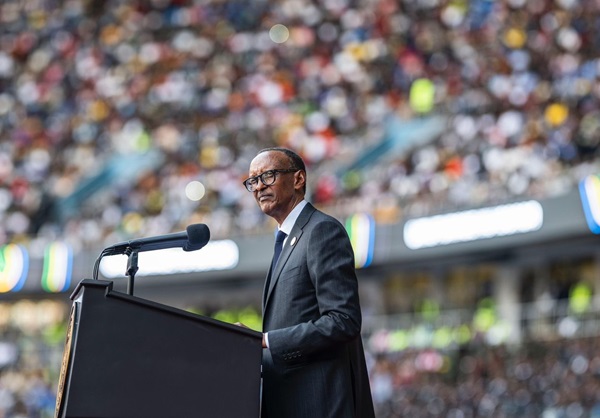
The two countries are outpacing global heavyweights. Tanzania is propelled with a reformist push under a woman president, while Rwanda is institutionalising gender equality in various sectors.
SPECIAL REPORT | BIRD AGENCY | Rwanda and Tanzania are emerging as Africa’s strongest governance performers, according to a new report. Chandler Good Government Index (CGGI) 2025, lists the two as the countries that have consistently improved their rankings since 2021, with their growth drivers challenging long-standing assumptions about governance on the continent. Out of 120 countries, Rwanda now sits at 59th place globally and in the second position in Africa with the strongest governance system, after Mauritius (51st) on the continent. Tanzania is ranked sixth in Africa with and 78th globally.
The index ranks Rwanda in 7th place globally for stable business regulations, better than Denmark and Norway to highlight Kigali’s growing reputation for predictability and order. The country also had a better rank on the attractive marketplace pillar(37th worldwide), ahead of South Korea and Chile, and just behind China. Some of the key indicators in this pillar are property rights, attracting investment and logistics competence.
Rwanda Governance Board, Chief Executive Officer, Dr. Doris Uwicyeza Picard, said in a recent webinar that after the 1994 Genocide devastation, Rwanda has rebuilt itself through deliberate choices and institution-building.
“In this rebuilding, we made three deliberate choices. We chose to stay together, which is fostering unity as a priority. We chose to be accountable to ourselves, ” said Picard.
According to Picard, Rwanda’s governance model blends institutions with homegrown mechanisms. There are Community-based courts (Gacaca), grassroots mediators (Abunzi), and performance contracts (Imihigo)that sit alongside the Auditor General, the Ombudsman’s Office, and the Rwanda Governance Board.
“This blend of modern institutions and homegrown solutions gives citizens a sense of ownership. And it ensures that government is inclusive and not distant,” she said.
The country also uses tools like the Citizen Report Card allow the public to score government service delivery annually. The latest figures picard said show that over 80% of Rwandans are satisfied with services in health, education, and local government. The results are visible. Two decades of 7% to 8% average growth and over 90% of citizens covered by national health insurance.
“This an annual nationwide survey that helps collect data on citizens’ feedback and participation with the planning and implementation of government strategies” said Picard.
Rwanda’s governance performance she said is also underpinned by Rwanda’s commitment to gender-inclusive governance where women hold more than 60% of seats in parliament, the highest rate in the world, and play a visible role in cabinet and local administration.
Tanzania’s governance rise has been driven by fiscal reforms under President Samia Suluhu Hassan, the first woman to lead an East African country. The index ranks Tanzania 57th globally for financial stewardship, close behind France. The East African country is ranked 25th worldwide on spending efficiency, ahead of Germany and Denmark.
According to Chandler Institute of Governance, Director of Knowledge, Dinesh Naidu, Dar es Salaam is stretching limited resources further than many wealthier states and by aligning budgets with outcomes in health and education, the Suluhu administration is earning international recognition for prudent management at a time when fiscal stress has become a global concern.
“This pillar is very interesting because it is a pillar that countries around the world have been struggling with in recent years, in all regions and at all income levels,” said Naidu.
While East African countries are climbing the governance ladder by focusing on fiscal discipline, accountability, and inclusivity, countries like South Africa is leaning towards global influence and strengthening is institutions. South Africa, ranked 77th overall, performing strongly in logistics competence (17th, tied with Australia), nation branding (18th, ahead of Singapore and the UAE), and transparency (22nd, better than Japan and Austria). Third placed Botswana is gaining ground with judicial digitalisation and fourth placed Morocco(75th globally) is rising on transparency and digital infrastructure.
Africa’s average governance score from 28 countries according to the index remains the lowest globally, propelled by Fiscal pressures, weak institutions, and political instability that continue to drag down performance in several states. But there is hope, Naidu said the upward trajectory in Rwanda, Tanzania, and others should inspire peers.
“Good government is built over decades, but every step forward matters. The achievements we see in these African countries today—from digitalisation to reforms in public institutions—are building blocks for long-term transformation,” said Naidu.
He added that the governance debate will be sharpened by Africa’s demographics.
“With 70% of Sub-Saharan Africa’s population under 30, governments that deliver on education, jobs, and accountability could unlock a powerful demographic dividend. Those that fail risk unrest and instability,” he said.
*****
SOURCE: bird story agency
 The Independent Uganda: You get the Truth we Pay the Price
The Independent Uganda: You get the Truth we Pay the Price





